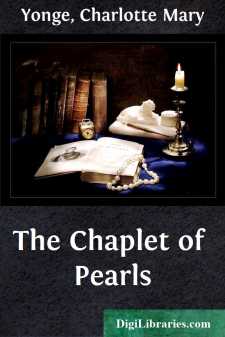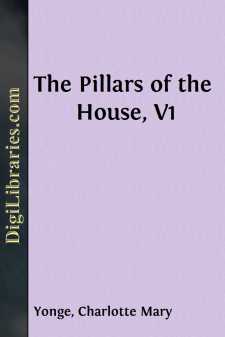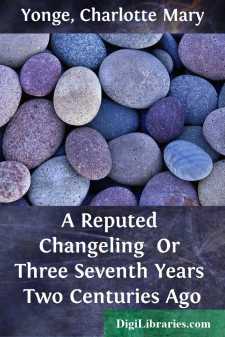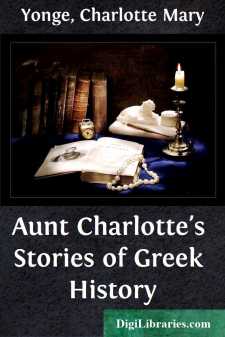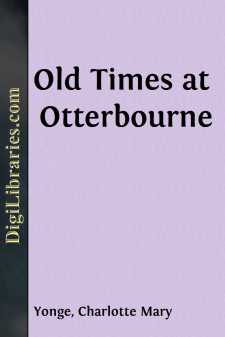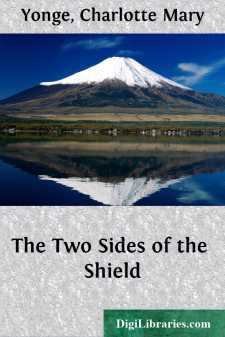Categories
- Antiques & Collectibles 13
- Architecture 36
- Art 48
- Bibles 22
- Biography & Autobiography 813
- Body, Mind & Spirit 142
- Business & Economics 28
- Children's Books 17
- Children's Fiction 14
- Computers 4
- Cooking 94
- Crafts & Hobbies 4
- Drama 346
- Education 46
- Family & Relationships 57
- Fiction 11829
- Games 19
- Gardening 17
- Health & Fitness 34
- History 1377
- House & Home 1
- Humor 147
- Juvenile Fiction 1873
- Juvenile Nonfiction 202
- Language Arts & Disciplines 88
- Law 16
- Literary Collections 686
- Literary Criticism 179
- Mathematics 13
- Medical 41
- Music 40
- Nature 179
- Non-Classifiable 1768
- Performing Arts 7
- Periodicals 1453
- Philosophy 64
- Photography 2
- Poetry 896
- Political Science 203
- Psychology 42
- Reference 154
- Religion 513
- Science 126
- Self-Help 84
- Social Science 81
- Sports & Recreation 34
- Study Aids 3
- Technology & Engineering 59
- Transportation 23
- Travel 463
- True Crime 29
The Chaplet of Pearls
Categories:
Description:
Excerpt
It is the fashion to call every story controversial that deals with times when controversy or a war of religion was raging; but it should be remembered that there are some which only attempt to portray human feelings as affected by the events that such warfare occasioned. 'Old Mortality' and 'Woodstock' are not controversial tales, and the 'Chaplet of Pearls' is so quite as little. It only aims at drawing certain scenes and certain characters as the convulsions of the sixteenth century may have affected them, and is, in fact, like all historical romance, the shaping of the conceptions that the imagination must necessarily form when dwelling upon the records of history. That faculty which might be called the passive fancy, and might almost be described in Portia's song,—
'It is engendered in the eyes,
By READING fed—and there it dies,'—
that faculty, I say, has learnt to feed upon character and incident, and to require that the latter should be effective and exciting. Is it not reasonable to seek for this in the days when such things were not infrequent, and did not imply exceptional wickedness or misfortune in those engaged in them? This seems to me one plea for historical novel, to which I would add the opportunity that it gives for study of the times and delineation of characters. Shakespeare's Henry IV. and Henry V., Scott's Louis XI., Manzoni's Federigo Borromeo, Bulwer's Harold, James's Philip Augustus, are all real contributions to our comprehension of the men themselves, by calling the chronicles and memoirs into action. True, the picture cannot be exact, and is sometimes distorted—nay, sometimes praiseworthy efforts at correctness in the detail take away whatever might have been lifelike in the outline. Yet, acknowledging all this, I must still plead for the tales that presumptuously deal with days gone by, as enabling the young to realize history vividly—and, what is still more desirable, requiring an effort of the mind which to read of modern days does not. The details of Millais' Inquisition or of his Huguenot may be in error in spite of all his study and diligence, but they have brought before us for ever the horrors of the auto-da-fe, and the patient, steadfast heroism of the man who can smile aside his wife's endeavour to make him tacitly betray his faith to save his life. Surely it is well, by pen as by picture, to go back to the past for figures that will stir the heart like these, even though the details be as incorrect as those of the revolt of Liege or of La Ferrette in 'Quentin Durward' and 'Anne of Geierstein.'
Scott, however, willfully carved history to suit the purposes of his story; and in these days we have come to feel that a story must earn a certain amount of credibility by being in keeping with established facts, even if striking events have to be sacrificed, and that the order of time must be preserved. In Shakespeare's days, or even in Scott's, it might have been possible to bring Henry III. and his mignons to due punishment within the limits of a tale beginning with the Massacre of St. Bartholomew; but in 1868 the broad outlines of tragedy must be given up to keep within the bounds of historical verity.
How far this has been done, critics better read than myself must decide. I have endeavoured to speak fairly, to the best of my ability, of such classes of persons as fell in with the course of the narrative, according to such lights as the memoirs of the time afford. The Convent is scarcely a CLASS portrait, but the condition of it seems to be justified by hints in the Port Royal memoirs, respecting Maubuisson and others which Mere Angelique reformed. The intolerance of the ladies at Montauban is described in Madame Duplessis-Mornay's life; and if Berenger's education and opinions are looked on as not sufficiently alien from Roman Catholicism, a reference to Froude's 'History of Queen Elizabeth' will show both that the customs of the country clergy, and likewise that a broad distinction was made by the better informed among the French between Calvinism and Protestantism or Lutheranism, in which they included Anglicanism....


